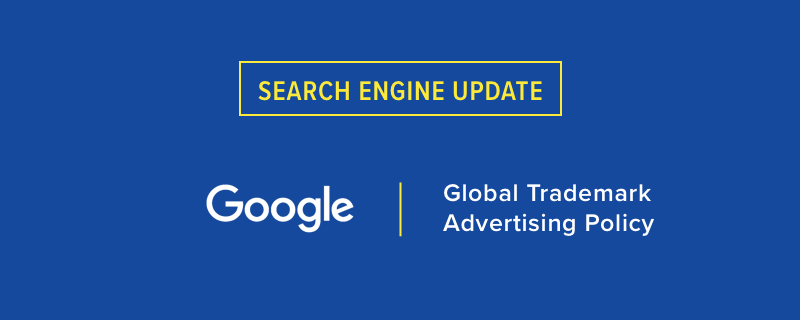Good news trademark holders! Google has recently updated its Google Ads Trademark Advertising Policy, giving you simplified global control of your trademarks.
In the past, Google’s trademark policies varied by geography. The United States, Canada, United Kingdom, Ireland, France, Germany, Australia, New Zealand, and Japan all had the same trademark policy, while other countries had their own rules, making the process of submitting trademark complaints difficult to navigate. Now, for brands with trademarks registered internationally, the trademark rules are consolidated into a single global policy. Enforcing your trademarks across the globe in the Google Search Network is now much simpler!
When making complaints to Google for the misuse of your trademark, it's important to consider the rules of the trademark policy.
Other advertisers are allowed to use a trademark in the ad title and text if they meet the following criteria:
- Resellers: If the ad landing page is dedicated to the selling of or the facilitating of the sale of the mentioned trademark, components, replacement parts, or compatible products or services.
- Informational: If the ad landing page’s primary purpose is to provide information about the product or service of the trademark.
- Term not used as the trademark: If the advertiser uses the trademark as a term and not in reference to the trademark. This includes the descriptive or ordinary meaning of the term or goods and services.
- Authorized advertisers: Advertisers authorized by the trademark owner can use the trademark in advertising.
If the use of the trademark does not match all of that criteria, protect your trademark and file a complaint with Google!
Don’t the EU and the EFTA still have a separate Google Ads policy?
The trademark policy criteria for ad title and text are consistent globally. However, the EU and EFTA policies may give trademark owners even greater protection of their trademark. In some instances, Google will conduct a limited investigation into the ad. If a combination of the keywords and ad creates confusion, it may be disallowed.
Google’s policy states, “If we find that the combination of keyword and ad is confusing, we will disapprove it.” Whether or not something is confusing, of course, varies greatly on the specific consumer and the circumstances. The July 2019 Amazon v. Ortlieb case in Germany, however, put some parameters on what the German courts view as “misleading” and thus offers some guidance to brands.
The German Federal Court of Justice (BGH) ruled that Amazon’s advertising on Google using the branded term “Ortlieb” was a trademark infringement because the Google ad led to a list of results on Amazon that included competitors’ products, which was confusing to consumers.
What does the change mean for brands?
Brands can now apply the same policies to enforcing trademark infringements globally and won’t have to account as much for regional differences. However, while this unified policy streamlines enforcement to some extent, especially for those submitting their infringement notices manually, companies looking to make the most out of their brand investments can still benefit from an automated approach to monitoring and remediating trademark violations.

